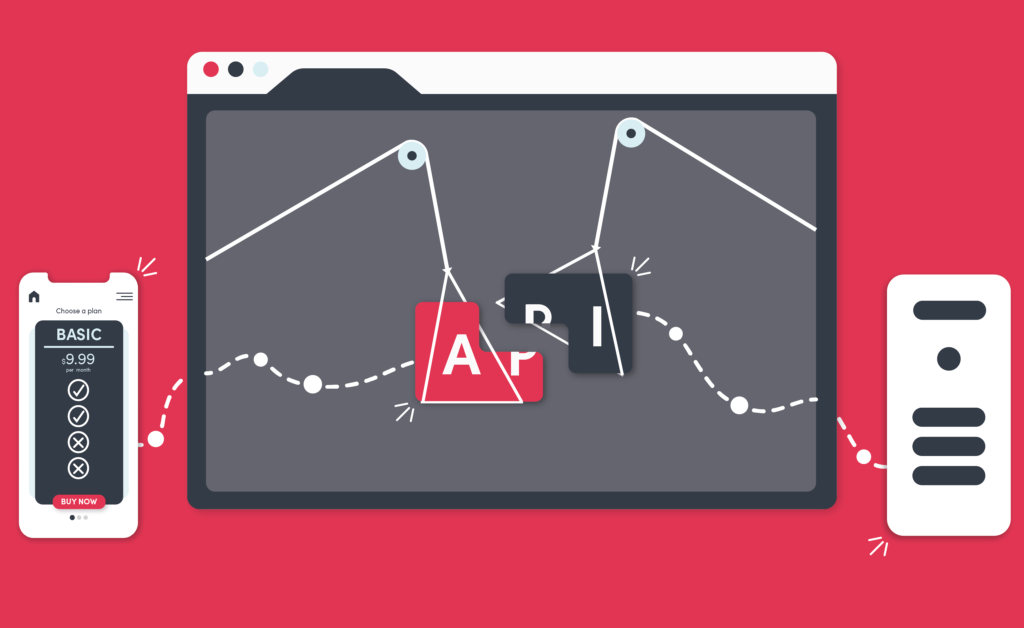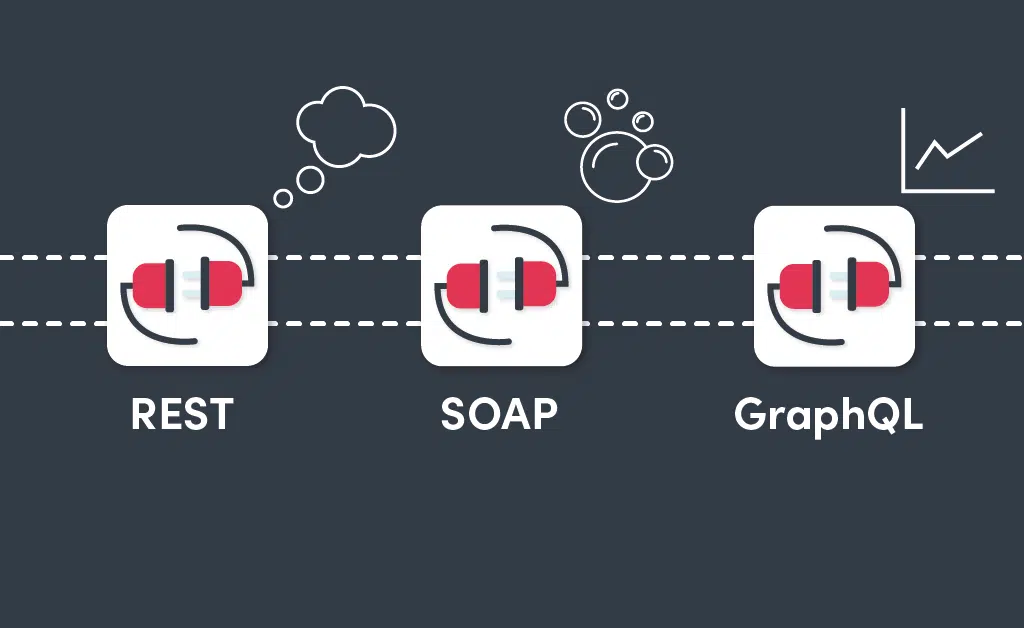Updated on by Hayley Brown
APIs have become the yarn that makes the digital world knit together. Giving consumers quick access to maps, fitness data, authentication, eCommerce platforms, and so on. They have also provided businesses with the ability to adapt and develop products and services in the face of severe disruption.
APIs are now a critical aspect of a business’s digital transformation strategy. As well as being a vital element in consumers’ experience. Having a strong API strategy is vital for getting ahead in the API economy.
What is the API economy?
The API economy refers to business models and practices built around the use of APIs in the modern digital economy. In other words, an API economy presents services and data through APIs to generate value for an organisation, in a controlled way.
According to VentureBeat, “the API economy can be defined by how organizations use APIs to improve efficiency and profitability by optimizing resources and opening new revenue opportunities through the wider digital ecosystem.”
The API Ecosystem is Growing
APIs have been around for a while now and recently have seen a shift in view. For instance, viewing APIs as a product with tangible business value. Of which has the ability to work alongside, or further enhance your existing product or services available. This can help your organisation not only get ahead in the API economy but help your digital transformation efforts.
It is no longer only developers who have the ability and interest to build APIs. Other business executives such as product managers and founders have realised the potential financial benefit of APIs. They are another route to a different market. A source of brand awareness, a way to improve customer service, and a new avenue for revenue.
For instance, a bank wants to provide its services integrated with retailers’ applications, and have in-app payment choices for consumers. Combining their API data with valuable assets from partners and third parties.
The Changing Landscape of APIs
According to Postman’s 2021 State of the API Report “the pandemic changed the world, and the world responded with APIs.” They asked more than 28,000 developers and API professionals to share their thoughts on APIs. Their organisation, and where they see the industry going. Those who stated that the pandemic did affect their business operations, were posed the question ‘where are your organisation’s changes supported by APIs?’ Of which more than half said yes.
It was noted that “organisations adopted new channels or enhanced existing ones to reach and serve customers”. Other areas that saw new investment were eCommerce, customer support with chat and text options, and contactless digital systems. All of these relied on APIs.
During the past two years, APIs have helped shift and pivot businesses and their product offerings. They have improved product rollout times from years to weeks and months. APIs and internal integrations have also helped to solve many working-from-home challenges via automation.
Other key findings from their report found that developers are spending more time with APIs. With more than half of the organisation’s development effort spent on APIs. As well as API investments remaining strong. It also found that many more organisations are embracing the API-first philosophy, and it is paying off. APIs can be developed quickly and deployed more frequently with errors rectified efficiently.
How can you get ahead in the API economy?
It starts with strategy and adopting an API-first approach, as well as making your API accessible. Making APIs accessible allows organisations to give partners access to core business capabilities. This can result in a quicker time to market and reduce costs.
Adopting an API-first approach means making APIs that are consistent and reusable. Then establish a contract for how the API is supposed to behave. This has a direct effect on the way the API is designed, as APIs are increasingly designed to be consumer-centric. Tailoring their design to customers’ use cases, ensuring good customer experience. Then use that documentation and publication to later onboard similar customers faster and generate more revenue.
APIs are helping to shift from on-premises to cloud and microservice-based applications. Creating API microservices is a way of monetising your APIs. It separates portions of an application into smaller, self-contained services.
Making things easier for developers to manage. As well as giving businesses greater agility in maintaining, upgrading and scaling their product and services. “APIs enable companies to more easily build products and services that would otherwise take too long to build,” Kong co-founder and CTO Marco Palladino told VentureBeat.
API Economy and Digital Transformation
The increased API usage has propelled organisations to not only continue their digital transformation efforts but accelerate them. According to Google’s State of API, Economy 2021 Report “APIs are central to enterprises’ needs and digital transformation efforts.”
APIs and digital transformation, therefore, go hand in hand.
How can Cyclr, an embedded iPaaS, help with your API economy?
Cyclr is a low-code platform where you can build integrations between third-party applications and your platform. Once a Connector is created, Cyclr transforms this humble file into a fully working, drag-and-drop API. Then handles all of the usual work with APIs such as authentication, paging, errors, etc. automatically.
As well as building API connectors Cyclr has an existing array in our connector library. Giving you the easiest way to connect your SaaS to a growing ecosystem and to integrate between platforms and data sources.
The platform can help you get ahead in the API economy by creating new revenue opportunities from your API.
Using Cyclr your integrations can be a value-add feature, which can push users up through your pricing plans. Therefore building reliable integration solutions for your customers, and increasing the revenue generated by your API.




